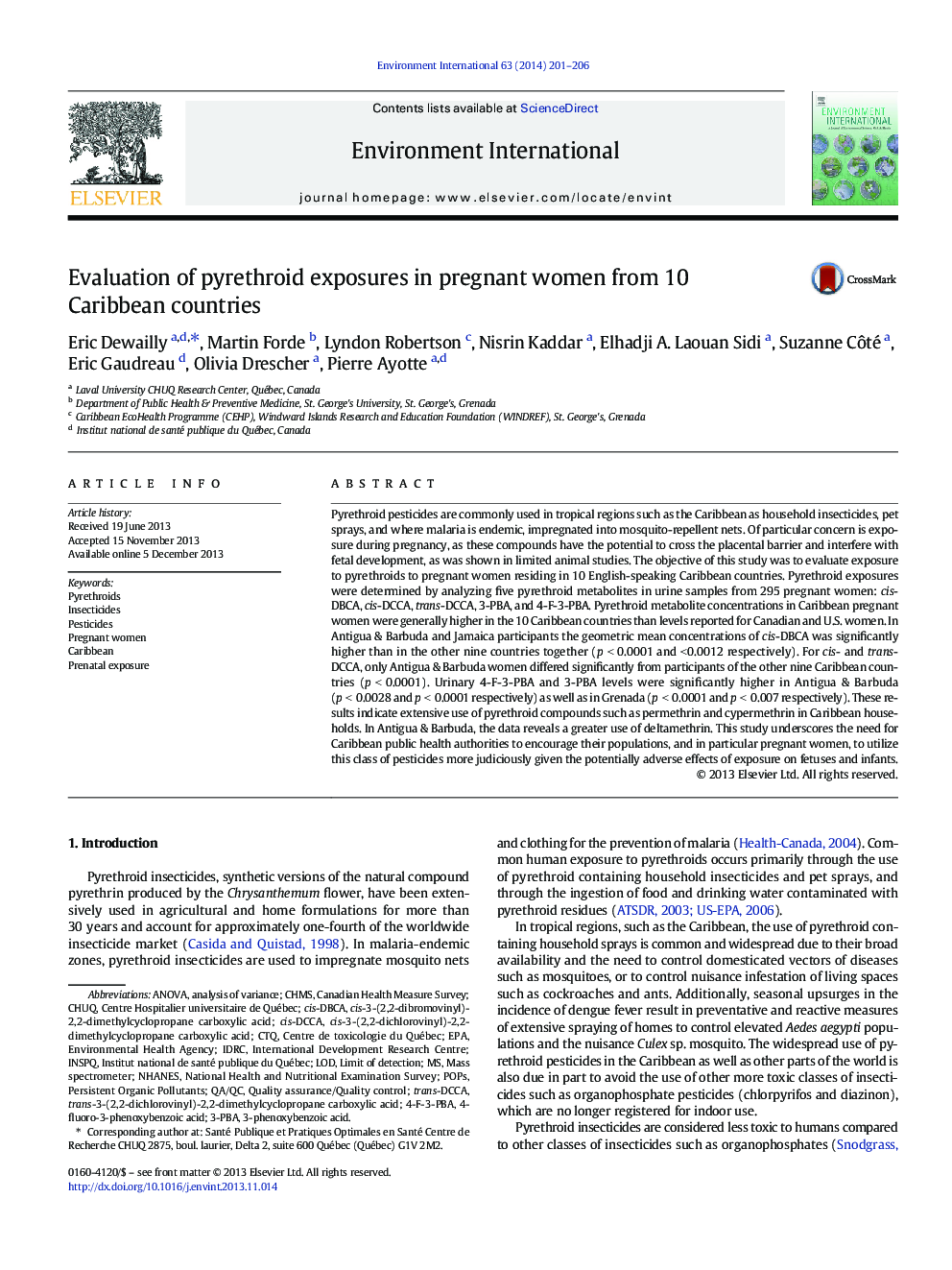| Article ID | Journal | Published Year | Pages | File Type |
|---|---|---|---|---|
| 6314083 | Environment International | 2014 | 6 Pages |
â¢There is extensive use of permethrin and cypermethrin in Caribbean households.â¢3-PBA, cis-DCCA and trans-DCCA are higher in 10 Caribbean countries than in Canada.â¢3-PBA is higher in Antigua & Barbuda than the other 9 Caribbean countries.â¢cis-DBCA is higher in Antigua & Barbuda than the other 9 Caribbean countries.â¢Pregnant women ought cut pyrethroid use given possible adverse effects on the fetus.
Pyrethroid pesticides are commonly used in tropical regions such as the Caribbean as household insecticides, pet sprays, and where malaria is endemic, impregnated into mosquito-repellent nets. Of particular concern is exposure during pregnancy, as these compounds have the potential to cross the placental barrier and interfere with fetal development, as was shown in limited animal studies. The objective of this study was to evaluate exposure to pyrethroids to pregnant women residing in 10 English-speaking Caribbean countries. Pyrethroid exposures were determined by analyzing five pyrethroid metabolites in urine samples from 295 pregnant women: cis-DBCA, cis-DCCA, trans-DCCA, 3-PBA, and 4-F-3-PBA. Pyrethroid metabolite concentrations in Caribbean pregnant women were generally higher in the 10 Caribbean countries than levels reported for Canadian and U.S. women. In Antigua & Barbuda and Jamaica participants the geometric mean concentrations of cis-DBCA was significantly higher than in the other nine countries together (p < 0.0001 and < 0.0012 respectively). For cis- and trans-DCCA, only Antigua & Barbuda women differed significantly from participants of the other nine Caribbean countries (p < 0.0001). Urinary 4-F-3-PBA and 3-PBA levels were significantly higher in Antigua & Barbuda (p < 0.0028 and p < 0.0001 respectively) as well as in Grenada (p < 0.0001 and p < 0.007 respectively). These results indicate extensive use of pyrethroid compounds such as permethrin and cypermethrin in Caribbean households. In Antigua & Barbuda, the data reveals a greater use of deltamethrin. This study underscores the need for Caribbean public health authorities to encourage their populations, and in particular pregnant women, to utilize this class of pesticides more judiciously given the potentially adverse effects of exposure on fetuses and infants.
